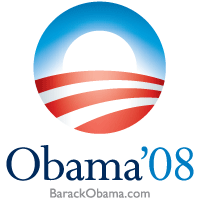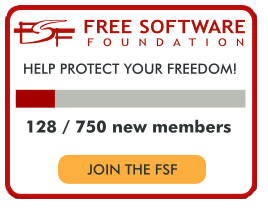I just saw the new Democratic Alliance’s (South African Political Party) new logo. Is it just me, or does it look very familiar?
AJ Venter writes that we need more, not less Linux distributions. We’ve discussed it to a degree on the #clug IRC channel, where AJ Venter also sometimes hangs out as silentcoder. I wanted to discuss it with him, but he said that he doesn’t want to discuss it over IRC and also blogged that he doesn’t want to. He says that he really wants to discuss it over comments on the post instead. Since he has disabled comments on the blog post in question, I decided to write this blog-reply.
I’m not convinced that we need more distributions. More distributions would result in huge duplication of work:
- Additional bug trackers
- More packaging work
- Relationships between maintainers and upstream projects
- Documentation
- Additional installer work
- … and there’s probably a lot more
There’s also very little benefit from doing a whole new distribution from scratch. Doing a custom installation from an existing distribution has plenty of benefits:
- Existing installers
- Lots of existing packages
- Most common issues are known and can be tracked in the distribution’s bug tracker
Distributions such as Debian and Ubuntu are super-easy to adapt, and there are very few use-cases that could warrant doing a distribution from scratch as apposed to doing a custom install disc of those two systems. Ubuntu’s parent company, Canonical, even goes a step further by offering free hosting for free software packages via the Launchpad PPA service.
I don’t think AJ’s “diversity” “arguement” is solid or even makes a proper case for the need for more distributions. You can have diversity and satisfy a wide array of unique use cases by leveraging the work of the existing distributions, without being wasteful and duplicating effort unnecesarily.
New Targets
Previously I blogged about the FSF 2007 Fundraiser and some of the cool things you get when you register as a member. The first time they did this, they recruited 300 new members, the second time 500 and now, the target is 800 new members.
Why join the FSF?
The Free Software Foundation’s primary source of income is donations. The Free Software Foundation has played a big part over the years to improve our accessibility to software and protect the rights of developers and users alike. Their high-priority projects have included:
- The creation of a completely free operating system, which has been achieved through both the GNU/Linux and BSD operating systems
- A free flash implementation, which is making good headway via the GNU Gnash project
- A free Java implementation, and Sun has committed to releasing Sun Java under a free license as well
- Maintaining the GNU licenses, including the GPL, LGPL and the relatively new AGPL.
- Campaigns such as Defective by Design (which is very important to me personally) and the Play Ogg campaign.
- Project hosting via the GNU Savannah site
Donations start from US$10 a month, and US$5 if you’re a student. It doesn’t sound like too much, but when enough members commit it goes a long way to help improving the FSF and what they can provide to us as free software users.
If you do sign up, please use my referer URL by clicking on the image above or on this link, they have a referrer program where they track how many members existing members have recruited. I had 5 which I thought was very little, but it gives me a #3 position currently on the referrers list. Richard Johnson, who is also an Ubuntero is also doing quite well on the list.
Some people often ask whether the Free Software Foundation is still relevant in a world where Free Software is already so abundant. Many people have (or have tried to) circumvented the practical benefits of free software by using Tivoization-like methods or by using Software Patents. I believe that the free software foundation is as relevant as ever and I will support them in what ever way I can.










Recent Comments